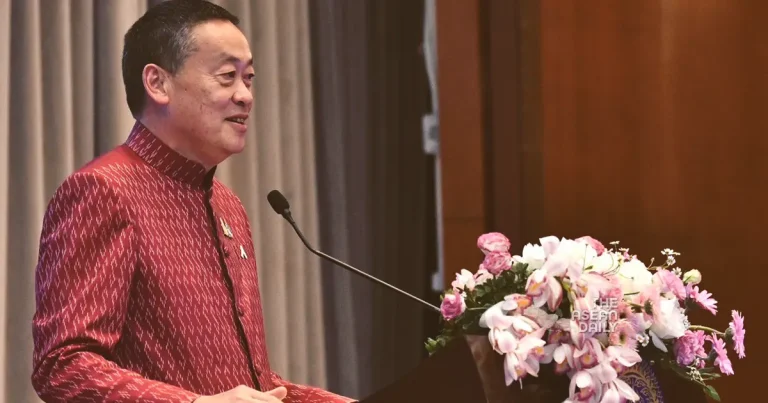23-11-2023 (BANGKOK) Prime Minister Srettha Thavisin assured on Wednesday that the cancellation of flight slots by several Chinese airlines, attributed to low passenger demand, would not affect the government’s visa exemption policy for Chinese citizens. The decision by Chinese airlines to relinquish landing and take-off rights came as they struggled to fill flights, reflecting a decline in demand.
Mr Srettha attributed the sluggish demand to the slower-than-anticipated economic recovery in China and a domestic travel promotion policy implemented by the Chinese government. Despite the challenges, he defended Thailand’s visa exemption policy for Chinese and Kazakh tourists, stating that the tourism industry would be in a more precarious state without their contribution.
The visa exemption policy, allowing Chinese and Kazakh tourists to visit Thailand without a visa from September 25 to February 29 next year, remains intact. Mr Srettha acknowledged that, due to reduced spending by tourists amid the ongoing pandemic, the government plans to enhance tourism promotions in other markets. Additionally, there are considerations to expand the visa waiver to include other countries, such as Taiwan and India.
Responding to concerns about a potential influx of criminals from China, the prime minister downplayed such fears, emphasizing the overall benefits of the visa exemption scheme. This comes in light of recent reports of Chinese citizens begging for money in Bangkok.
On Tuesday, Prachachart Turakij newspaper reported that the government’s visa exemption scheme did not lead to the anticipated surge in tourist arrivals. Initial figures during the scheme’s launch indicated a rise to 17,000-18,000 Chinese tourists per day, coinciding with China’s Golden Week holidays. However, after the holidays, daily arrivals dropped to around 8,000-9,000 before a slight increase to 10,000-11,000 in November.
Kirati Kitmanawat, director-general of Airports of Thailand Plc, acknowledged that flights from China are currently operating at 60% of pre-Covid levels. Similar situations were reported by other countries, with most experiencing approximately half of the pre-2019 arrival numbers from China.




